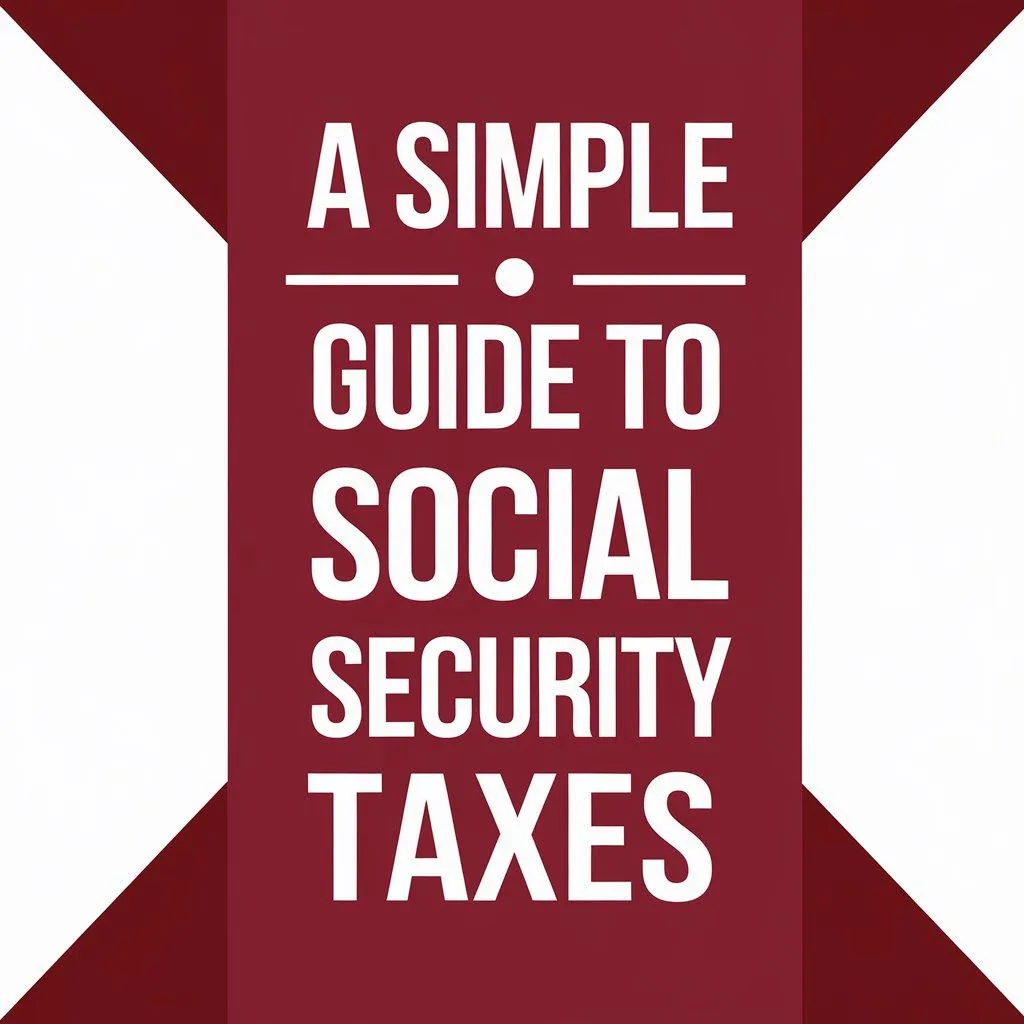
A Simple Guide to Social Security Taxes
When you think about Social Security, you might imagine retirement benefits and government checks later in life—but did you know that Social Security taxes affect nearly every working adult right now?
Whether you’re an employee, self-employed, or building your own business, it’s essential to understand how these taxes work—and how smart tax planning can help you avoid surprises and stay financially prepared.
At Consult With Erika, we’re all about helping entrepreneurs and individuals make smarter money moves, and that includes getting clear on Social Security taxes.
:max_bytes(150000):strip_icc()/GettyImages-2203057418-2a8e51ac898d4fdfa48d91b13414babf.jpg)
What Are Social Security Taxes?
Social Security taxes fund the federal program that provides retirement, disability, and survivor benefits. If you’ve ever looked at your paycheck and seen FICA listed, that’s it.
FICA tax rate is 7.65% (6.2% for Social Security + 1.45% for Medicare)
Employers pay another 7.65% on your behalf
If you’re self-employed, you pay the full 15.3% through self-employment taxes
These taxes are collected on a portion of your income up to a yearly cap ($168,600 for 2024). But don’t worry—tax planning for entrepreneurs can help you manage these payments efficiently.
Do You Have to Pay Social Security Taxes on All Income?
Not necessarily.
If you’re self-employed, you pay Social Security taxes on your net earnings, not gross income.
If you work part-time or earn under the reporting threshold, you may owe less.
Certain pensions and government employment are exempt from FICA.
Understanding these rules—and how they apply to your business or personal situation—is key. That’s where tax planning for small business owners becomes crucial.
Will Your Benefits Be Taxed Later?
Yes—Social Security benefits can be taxable, depending on your total income in retirement.
If you earn above certain thresholds (including wages, self-employment income, or even tax-exempt interest), a portion of your benefits could be taxed—up to 85% in some cases.
Smart retirement tax planning can help you structure your future income so you keep more of your benefits.
What Entrepreneurs and Self-Employed Individuals Should Know
If you run a business or side hustle, you're responsible for paying self-employment tax, which covers both the employer and employee share of Social Security and Medicare.
Here’s how to stay on top of it:
✅ Use bookkeeping software to track income and expenses
✅ Make estimated quarterly payments
✅ Deduct the “employer” portion of your self-employment tax on your 1040
✅ Work with a professional on your tax planning strategy
As part of our business financial consulting services, we help clients avoid the shock of tax season by preparing for Social Security taxes ahead of time.
Tips for Smarter Social Security Tax Planning
Maximize tax deductions to reduce net income
Set aside a percentage of your income each month for tax obligations
Use credit repair and audit services to boost your financial profile before retirement
Diversify your income sources to stay below taxable benefit thresholds
Invest in financial education for entrepreneurs to stay compliant year-round
Final Thoughts
Social Security taxes aren’t just something to think about later—they’re happening now, and they affect both your current budget and future benefits.
Whether you’re navigating your first year of self-employment or planning for retirement, understanding these taxes—and having a smart plan in place—can make all the difference.
📞 Want help building a tax strategy that actually works for you?
Book your free 15-minute strategy call and let’s build your financial future, step by step:
👉 https://calendly.com/consultwitherika/15-min-strategy-call

